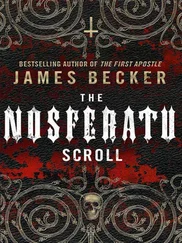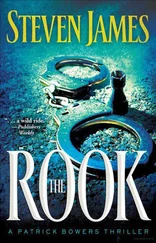James Becker - Echo of the Reich
Здесь есть возможность читать онлайн «James Becker - Echo of the Reich» весь текст электронной книги совершенно бесплатно (целиком полную версию без сокращений). В некоторых случаях можно слушать аудио, скачать через торрент в формате fb2 и присутствует краткое содержание. Жанр: Триллер, на английском языке. Описание произведения, (предисловие) а так же отзывы посетителей доступны на портале библиотеки ЛибКат.
- Название:Echo of the Reich
- Автор:
- Жанр:
- Год:неизвестен
- ISBN:нет данных
- Рейтинг книги:3 / 5. Голосов: 1
-
Избранное:Добавить в избранное
- Отзывы:
-
Ваша оценка:
- 60
- 1
- 2
- 3
- 4
- 5
Echo of the Reich: краткое содержание, описание и аннотация
Предлагаем к чтению аннотацию, описание, краткое содержание или предисловие (зависит от того, что написал сам автор книги «Echo of the Reich»). Если вы не нашли необходимую информацию о книге — напишите в комментариях, мы постараемся отыскать её.
Echo of the Reich — читать онлайн бесплатно полную книгу (весь текст) целиком
Ниже представлен текст книги, разбитый по страницам. Система сохранения места последней прочитанной страницы, позволяет с удобством читать онлайн бесплатно книгу «Echo of the Reich», без необходимости каждый раз заново искать на чём Вы остановились. Поставьте закладку, и сможете в любой момент перейти на страницу, на которой закончили чтение.
Интервал:
Закладка:
Five minutes later, Steven took a sip of brandy, then put the glass down on the coffee table and leaned forward.
“We don’t know exactly when, or even precisely where or who, but at some time during the early nineteen thirties one or more German scientists began working on an idea so radical that it led directly to the most important and highly classified weapons project ever undertaken by the Nazi regime.”
Steven Behr had Angela’s full attention. She trusted his knowledge implicitly. He knew more about the Second World War, and especially the events that took place in Germany during that incredibly turbulent period, than anyone else she’d ever met.
It was, she knew, going to be a long evening, but by the end of it she was certain that she’d have some kind of an answer to Chris’s question.
25
24 July 2012
Urgent pressure from his bladder awakened him just after six in the morning, by which time it was already quite light, and he immediately looked all around. There was nobody in sight, so Bronson stepped out of the car, relieved himself in a nearby bush, and did a quick circuit of the area, again checking that he was unobserved.
Then he started the car and headed out of the woods and toward Bestensee. When he reached the main road running east-west through the town, he turned left, toward the closest autobahn junction. As he cleared the western end of Bestensee, he caught a brief glimpse of a road sign, did a double take and almost immediately pulled the Hyundai to a stop at the side of the road. There was no traffic behind him-it was still very early in the morning-and he backed up the car a few yards until he could see the sign clearly.
The word written on it was Hauptstra?e, and it suddenly dawned on him that perhaps, in the half-light of the previous evening, he could have mistaken the initial letter of the street name he’d seen. He’d thought it was a “K,” but perhaps it had actually been an “H.” Had he somehow just found the road he’d been driven down?
Bronson grabbed the map book and opened it at the correct page. He studied that section of the map for a few moments, then shook his head. The Hauptstra?e he was driving along was the wrong shape-it simply had too many bends in it-and as far as he could see it didn’t cross any stretch of canal or river. But maybe Hauptstra?e was a common street name in German, like “High Street” or “Main Road” in English? Bronson already knew that strasse or stra?e meant “street,” and it wasn’t too big a leap of logic to guess that haupt could mean “high.” If so, there could be dozens of roads with that name in the area.
But still that might help him track it down, because he could set the satnav to take him to every single Hauptstra?e in Berlin, and then in each of the outlying districts. It would take time, but he’d find it in the end.
At eight forty local time, seven forty in the United Kingdom, he parked the car in a vacant space in the Am Kahlberg service area, put the battery back in his mobile phone, switched it on and dialed Angela’s number. She answered on the third ring; Bronson knew she was always awake by half past seven.
“It’s me,” he said. “Any joy?”
“And good morning to you, too,” she replied briskly.
“Sorry. Good morning. Any joy?”
“I suppose that depends on what you mean. I know my limitations, Chris. I’m linguistically challenged, so I asked Steven Behr to come around last night and help me out because he speaks fluent German. The first point is that the word Laterntrager doesn’t appear in German dictionaries, but Steven told me it’s a fairly uncommon proper name. It has no independent meaning, just like-oh, Burdiss, for example-has no independent meaning. It’s just a name, and not a very common one at that. So my first question is: could the person you were talking to have been referring to somebody by that name?”
“I don’t think so,” Bronson replied. “I can’t remember the exact phrase he used, but it was something like ‘before the Laterntrager arrives,’ as if he was referring to an object of some sort. So maybe he was using the word as a code name or nickname.”
“I suppose that’s possible,” Angela replied, not sounding particularly convinced by his argument. “Steven applied a bit of lateral thinking and suggested it could be another German word that sounds very like Laterntrager, but this word is in the dictionary: Laternentrager. Could that have been what he said?”
Bronson murmured the word a few times, trying it on for size, as it were.
“I suppose it could be. So what does that mean?”
“It’s an archaic word, one that Steven wouldn’t expect most Germans to have ever spoken, purely because of what it describes, though he was sure they would be able to tell you what it means. The literal translation would be ‘lantern bearer’ or ‘lantern carrier,’ and the English equivalent is most probably ‘lamplighter,’ the men who used to walk around the streets of London and other big cities lighting the gas lamps in the days before electricity. Is that any help?”
“I don’t know,” Bronson replied, “though I suppose it makes more sense. I’ve been thinking all along that Marcus-that was the man’s name-was probably referring to some kind of weapon, and it’s quite common in the military for weapons to be given nicknames, often names that relate to what the weapon is or what it does.”
“Really?”
“Yes. There’s a six-barreled Gatling minigun that’s fitted to tank-busting helicopters and aircraft, and that’s often called ‘Puff the Magic Dragon’ because of the effect it has on its targets.”
“That’s a bit sick, really, Chris.”
“Blame the military’s very basic sense of humor. Anyway, I’m just wondering if this is the same kind of thing, if this ‘lamplighter’ name describes what the weapon does, rather than what it is. It could be some kind of massive incendiary device, something that’s designed to ‘light up’ everything around it when it’s triggered. And from the way Marcus was talking, I think this weapon-assuming we’re right, of course-is a device with a high yield, and the effects of it would be devastating, quite literally.”
“Are there weapons like that?”
“There are lots of types of incendiary bombs, of course, but they’re usually quite small because they’re designed to start fires, not blow things apart. I’m not aware of any big incendiary weapons, apart from the really nasty stuff like napalm and Willy Pete. That’s another really inappropriate nickname for the white phosphorus bombs the Americans used to have, but I’ve been out of the army for a long time now, so I’m right out of touch.”
For a few moments Angela was silent, then she sighed.
“Then I suppose this is as good a time as any to explain what else Steven came up with. I told you what Laternentrager means, what the dictionary definition says. But there’s another possible interpretation of the word which is much, much older than a nineteenth-century lamplighter. It could be a fairly literal translation of an ancient name, a name that’s resonated down the ages, a name that’s synonymous with death and destruction.”
“You’re sounding almost messianic, Angela. Or maybe apocalyptic.”
“That’s not a bad description, actually. The Latin phrase lucem ferre means ‘the bearer of the light,’ and that gave us an English name that means almost the same thing. ‘He who carries the light’ is the ancient name of Lucifer, the Devil. The Devil is supposed to be the author of all evil, the fallen angel who brought death to this world. If you’re right, Chris-and I pray that you’re not-then this man Marcus might be planning to unleash a weapon on London that would be far worse than the wrath of God; it could be the Devil’s revenge.”
Читать дальшеИнтервал:
Закладка:
Похожие книги на «Echo of the Reich»
Представляем Вашему вниманию похожие книги на «Echo of the Reich» списком для выбора. Мы отобрали схожую по названию и смыслу литературу в надежде предоставить читателям больше вариантов отыскать новые, интересные, ещё непрочитанные произведения.
Обсуждение, отзывы о книге «Echo of the Reich» и просто собственные мнения читателей. Оставьте ваши комментарии, напишите, что Вы думаете о произведении, его смысле или главных героях. Укажите что конкретно понравилось, а что нет, и почему Вы так считаете.












